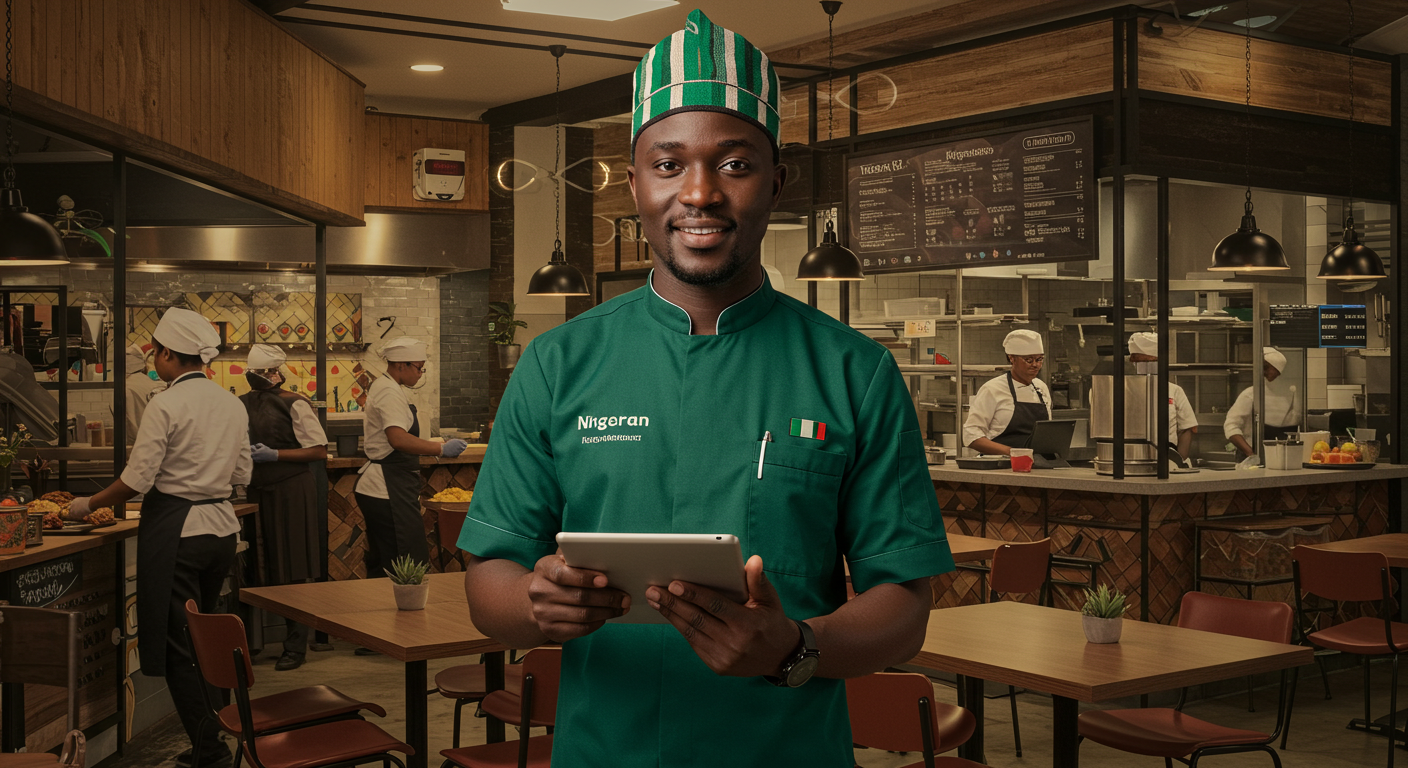Running a successful restaurant in Nigeria requires more than just good food, it takes great management. At the heart of every thriving restaurant is a capable restaurant manager, someone who wears multiple hats and ensures the entire operation functions like a well-oiled machine. From handling staff issues to managing customer complaints, ordering supplies, and keeping costs under control, the restaurant manager plays a critical role in ensuring business success.
Let’s break down the essential responsibilities of a restaurant manager in the Nigerian restaurant space:
1. Operations & Staff Management
Daily Operations
The manager oversees both front-of-house (waiters, hostesses) and back-of-house (kitchen staff) operations. In a Nigerian setting, this might include ensuring there’s constant power supply (or managing the generator), water availability, POS functionality, and food is served on time, even during peak hours or public holidays.
Staff Management
- Recruiting and Hiring: Finding the right staff, chefs, servers, cleaners is key. Many restaurants in Nigeria rely on referrals or internal networks, but a manager must still vet and onboard new hires properly.
- Training: Staff often come with varying levels of experience. The manager trains them to understand customer service, hygiene, and kitchen protocol.
- Scheduling: Rotating shifts to ensure no staff burnout and full coverage on busy days like weekends.
- Conflict Resolution: When kitchen staff disagree or a waiter arrives late, the manager steps in with maturity and fairness.
2. Customer Service
In the age of social media and instant reviews, one bad experience can go viral. Nigerian customers value respect, speed, and consistency. The manager ensures:
- Every guest is greeted warmly and served promptly.
- Complaints (e.g., wrong orders, delays) are handled calmly and professionally.
- Feedback is collected to improve service delivery.
3. Financial & Inventory Management
Financial Management
- Cost Control: The manager must reduce wastage especially in places where electricity issues can spoil perishables.
- Budgeting: Keeping food costs, staff salaries, and utilities within budget is vital.
- Reporting: Regular updates to the owner or stakeholders on profit, loss, and opportunities for growth.
Inventory Management
- Stock Tracking: Knowing when to restock rice, meat, drinks, and cleaning supplies.
- Vendor Relations: Many Nigerian restaurants work with local markets or distributors. The manager negotiates better deals and ensures timely deliveries.
4. Menu Planning and Collaboration
- Working with the head chef to introduce items that customers love (e.g., jollof rice combos, shawarma platters, amala with gbegiri).
- Analyzing which meals are profitable and which need adjustments.
- Balancing local taste preferences with pricing and ingredient availability.
5. Compliance with Health and Safety
In Nigeria, staying compliant means:
- Keeping the restaurant clean and pest-free.
- Ensuring food is stored at the right temperature.
- Training staff on food safety and hygiene (especially during health inspections by NAFDAC or local authorities).
- Having fire extinguishers, first aid kits, and sanitation in place.
6. Marketing and Promotion
- Social Media: Leveraging Instagram, WhatsApp, TikTok, and Twitter to post daily specials, events, and promotions.
- Loyalty Programs: Offering discounts or free drinks for returning customers.
- Partnerships: Collaborating with delivery platforms like Glovo, Chowdeck, or platforms like Foodgital to increase online orders.
7. Leadership and Team Motivation
- Creating a positive work environment where staff feel valued.
- Recognizing hardworking employees and incentivizing performance.
- Leading by example, being punctual, respectful, and accountable.
8. Embracing Digital Transformation

Modern Nigerian restaurant managers are increasingly turning to technology to streamline operations. With solutions like GrowPro by Foodgital, managers can leverage integrated systems to handle online orders, POS transactions, and digital marketing. These digital tools provide real-time analytics and actionable insights, enabling managers to make data-driven decisions that boost revenue and efficiency. The adoption of digital solutions is especially important in an environment where traditional methods often lead to errors and revenue leakage.
Conclusion
In Nigeria’s dynamic restaurant industry, the restaurant manager is the glue that holds everything together. Whether it’s navigating staff issues, handling power outages, managing customer expectations, or ensuring the restaurant turns a profit, their role is all-encompassing. With the right manager, a restaurant in Nigeria can rise above the challenges and become a beloved spot in the community.
If you’re a restaurant owner or manager looking to boost your reputation, attract more customers, and increase revenue, GrowPro by Foodgital is your solution.
📢 Sign up today! Click the link below or call us at 08166809857 or 09039262702 to get started. 🚀


